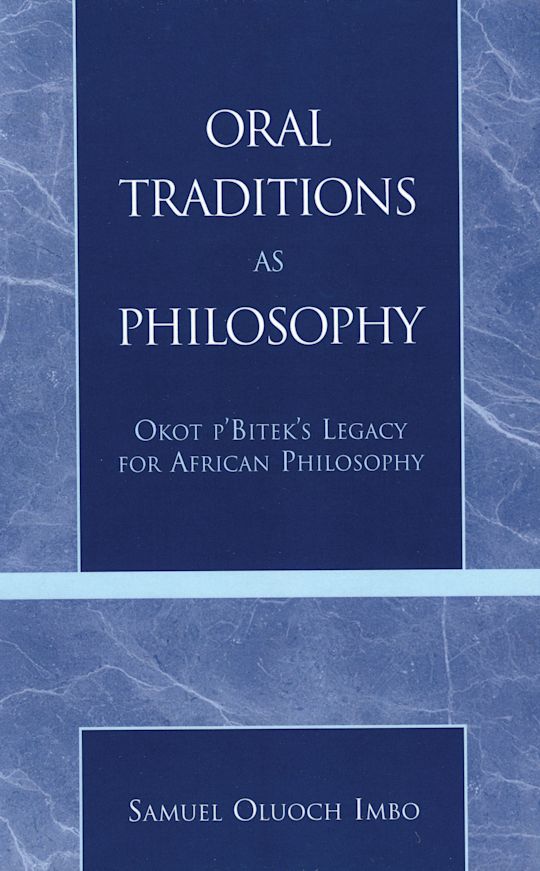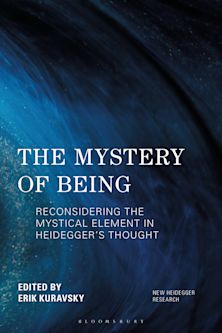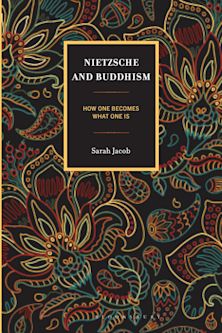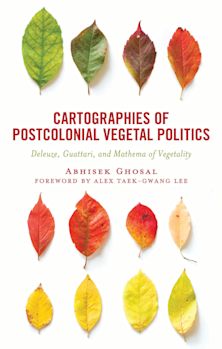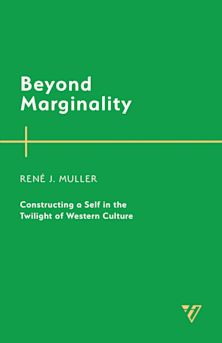- Home
- ACADEMIC
- Philosophy
- Philosophy - Other
- Oral Traditions as Philosophy
This product is usually dispatched within 1 week
- Delivery and returns info
-
Free CA delivery on orders $40 or over
You must sign in to add this item to your wishlist. Please sign in or create an account
Description
Oral Traditions as Philosophy is a study of the Ugandan poet and cultural critic Okot p'Bitek. In his poems and critical essays, Okot engages with the oral traditions of his people-the songs, dances, funeral dirges, and so forth-seeing them as manifestations of the people's philosophy of life. Imbo's book makes explicit the philosophical questions raised in Okot's work and places them within the wider picture of contemporary African philosophy.
Table of Contents
Chapter 2 Defining the Philosophical, the Religious, and the Spiritual
Chapter 3 Oral Traditions as Texts
Chapter 4 Roles for Women in African Oral Traditions
Chapter 5 Western Scholarship, African Religions
Chapter 6 Problems of Translating Western Concepts into African Languages
Chapter 7 Authentic African Selfhood
Chapter 8 Responsibilities of African Philosophers
Product details
| Published | Dec 31 2001 |
|---|---|
| Format | Hardback |
| Edition | 1st |
| Extent | 204 |
| ISBN | 9780847697724 |
| Imprint | Rowman & Littlefield Publishers |
| Dimensions | 235 x 156 mm |
| Publisher | Bloomsbury Publishing |
About the contributors
Reviews
-
Samuel Imbo's book explores the philosophical significance of a remarkable African man-of-letters. Okot p'Bitek was a pioneer in the debate about 'the invention of Africa,' in the discourse about the alleged 'Christianization' of African indigenous religions, in the choice of an African language by a Westernized African writer as a literary medium, and in giving voice to 'negritude' in a non-European language at long last. P'Bitek also remains as the only male African writer whose most famous work is about a woman's perspective on the gender-divide. Samuel Oluoch Imbo takes us to those philosophical and social areas-and beyond.
Ali A. Mazrui, director, Institute of Global Cultural Studies, SUNY Binghamton








